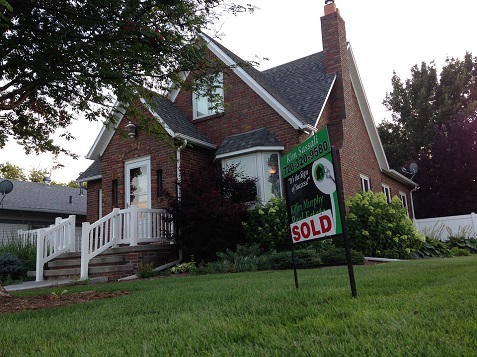Playing Your Cards Right: Can a Minimum Wage Earner Afford to Buy a Home?
 There are a lot of wrong assumptions floating around about millennials. One of these assumptions is that millennials have no interest in owning homes. But, according to a survey by Fannie Mae, 91% of renters between the ages of 25 and 34 want to own a home one day. Some haven’t yet because they aren’t at the right time in their lives. Others haven’t done so because they only earn minimum wage, have a lot of debt, or both. Here we’ll look at whether minimum wage earners, with or without debt, can afford to buy a home.
There are a lot of wrong assumptions floating around about millennials. One of these assumptions is that millennials have no interest in owning homes. But, according to a survey by Fannie Mae, 91% of renters between the ages of 25 and 34 want to own a home one day. Some haven’t yet because they aren’t at the right time in their lives. Others haven’t done so because they only earn minimum wage, have a lot of debt, or both. Here we’ll look at whether minimum wage earners, with or without debt, can afford to buy a home.
Minimum Wage Workers With Debt
How much each household should spend on housing debt and overall debt is covered by the 28/36 rule. No more than 28% of gross monthly income should be spent on housing, and no more than 36% should be spent on total debt. This means that if a minimum-wage earner were to spend the maximum 28% of his or her monthly income on a mortgage, only 8% more should be spent on other debt repayments. For someone working full time at a minimum wage of $7.25/hour, this leaves roughly $90 that can be spent on other debt per month. This rule suggests that minimum wage workers can’t afford to pay off debt and make a mortgage payment at the same time. These potential homeowners would do best to pay off other debt before buying a home. This doesn’t always take as long as one might think. The advice found now at National Debt Relief suggests that clients able to stick with their program pay off their debt loads in 24 to 48 months.
Minimum Wage Workers Without Debt
If they were following the 28/36 rule, potential homebuyers would have roughly $325 per month to put toward housing costs, with an additional $90 that would’ve gone toward other debt. This is assuming a minimum wage of $7.25 per hour and working 40 hours a week. This can be enough to purchase a home in many areas of the country, assuming buyers don’t forget that home costs involve more than just the mortgage payment.
An article on CNBC talks about how nearly 63% of millennial homebuyers have regrets about not doing their homework before buying their first home. These buyers talk about how they didn’t realize there would be additional costs associated with homeownership, including insurance, property taxes, and maintenance. This article suggests keeping the cost of a first home below the 28% mark so that there is an additional monthly income to cover these costs.
Variable Minimum Wages and Home Prices
Going back to the question we started with, the answer is yes, minimum wage earners can afford to buy a home. But there are many caveats to go with “yes.” Yes, but they need to have no other debt. Yes, but they need to live in an area with home prices that allow them to stick to the 28/36 rule. Yes, but they may have to live in an area of the country with a higher minimum wage. US News lists the top ten states with the most affordable housing, with South Dakota, Michigan, and West Virginia taking the top three spots. Of these three states, Michigan has the highest minimum wage at $9.45/hour.
Finding the right combination of these two factors means that yes, minimum wage earners can afford to buy a home. The key here is being willing to move if the right combination can’t be found where they live. This can be great news for those millennials wanting to own a home and who might be open to exploring the country to find the right combination of wages and affordable homes.